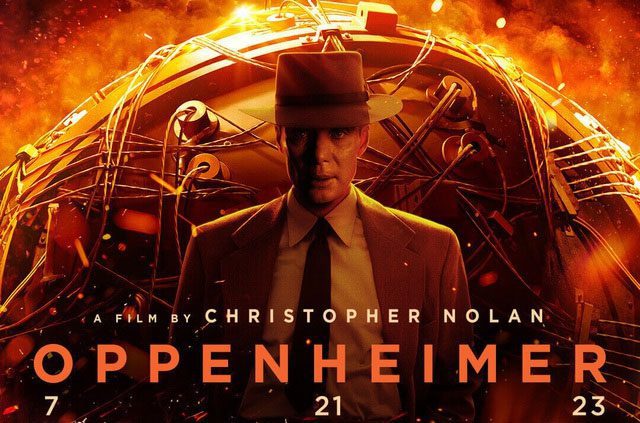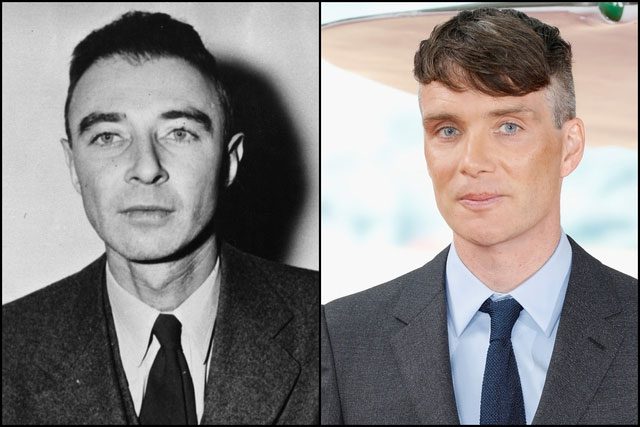Oppenheimer is the most anticipated blockbuster of this summer, marking the return of Hollywood’s Midas, Christopher Nolan, after three years. The film garners attention with its massive investment scale, depicting a historical narrative about the father of the atomic bomb and featuring a distinguished cast.
A Film About a Character Who Influenced History

Oppenheimer is a film with a massive investment scale, with a production budget reportedly reaching 100 million USD.
Oppenheimer is the latest and possibly the most ambitious project of cinematic genius Christopher Nolan. The film is adapted from the Pulitzer Prize-winning book American Prometheus: The Triumph and Tragedy of J. Robert Oppenheimer by authors Martin Sherwin and Kai Bird. Falling under the genres of drama, war, and biography, Oppenheimer portrays the illustrious yet tumultuous career of American scientist J. Robert Oppenheimer as he successfully developed the atomic bomb— a deadly weapon that shaped the world order during World War II.
Faced with the threat that Nazi Germany could successfully develop an atomic bomb, potentially aiding Hitler in achieving decisive victories in World War II, President Franklin Roosevelt established the Manhattan Project in mid-1942, allocating a colossal budget of 2 billion USD at the time to research and develop the most terrifying weapon of mass destruction. Appointed to lead the Manhattan Project was American physicist J. Robert Oppenheimer.

Physicist Oppenheimer (left) and the actor portraying him in the film – Cillian Murphy

Oppenheimer is expected to unveil many intriguing perspectives on the life and career of the father of the atomic bomb.
The birth of the atomic bomb significantly impacted the entire course of human history. Its creator, physicist Oppenheimer, was a genius but also seen as the Grim Reaper, a criminal for inventing a weapon capable of unprecedented destruction. He himself lived in torment and anguish as he witnessed the tragic consequences of his creation, referring to himself as the “destroyer of worlds.” Serving his country, satisfying his thirst for knowledge, or aiding in crime? Oppenheimer will provide audiences with fascinating insights into the life and thoughts of one of the most famous figures of the 20th century.
Who is Oppenheimer?
The creator of the atomic bomb is scientist Julius Robert Oppenheimer (1904 – 1967). He was the head of the Manhattan Project, the United States’ initiative to research and develop the atomic bomb in 1942.
Born in New York City in 1904, Julius Robert Oppenheimer was the son of a wealthy German Jewish immigrant who prospered through the import of textiles. He graduated with honors from Harvard University in just three years and then studied theoretical physics at both the University of Cambridge in England and the University of Göttingen in Germany, where he earned his Ph.D. at the age of 23.
The young physicist quickly befriended some of the greatest scientists of his time. His academic work advanced quantum theory and predicted everything from neutrons to black holes. He was also eager to learn outside the realm of science, studying Sanskrit and exploring religious studies.
After the United States joined the Allies in 1941, Oppenheimer was invited to participate in the top-secret Manhattan Project to develop nuclear weapons. While the researcher worked to understand what was necessary to initiate and sustain a neutron chain reaction to create a nuclear explosion, Oppenheimer’s superiors were highly impressed with his extensive knowledge, ambition, and ability to inspire other scientists. In 1942, the U.S. military appointed Oppenheimer as the head of the secret bomb testing laboratory.
As military authorities searched for a suitable location for the laboratory, Oppenheimer proposed the Los Alamos Ranch School, a private school for boys near Santa Fe. Soon after, he directed hundreds, then thousands of staff at the Los Alamos Laboratory.
Oppenheimer not only assembled a team of the brightest minds of the era, but he also inspired, motivated, organized, and encouraged them to showcase their talents. On July 16, 1945, Oppenheimer and his colleagues gathered at the Trinity test site south of Los Alamos for the world’s first nuclear explosion. It was an incredibly tense moment. The scientists understood that the bomb, nicknamed “Gadget,” would shape the future of the world. But they also feared it could end World War II. Although the war in Europe had concluded, American authorities feared the bloodiest phase of the war was still ahead. They hoped to force Japan to surrender instead of threatening to use the new weapon. The secret test was a success.
On August 6 and 9, 1945, the United States dropped two bombs that Oppenheimer helped develop on Hiroshima and Nagasaki. At least 110,000 people were killed in the explosions that obliterated both cities on an unprecedented scale. Oppenheimer was part of the scientific council that advised the War Department to deploy the bombs over Japan as quickly as possible. Debates continue over whether the government heeded scientists’ requests to drop bombs only on military targets or even conduct a public demonstration before attempting to force Japan’s surrender.
The night before the Hiroshima bombing, Oppenheimer was cheered on by a crowd of collaborating scientists at Los Alamos and stated that his only regret was not finishing the bomb in time to use against the German army. But despite the excitement over their achievement, the scientists were horrified by the loss of life in the attack, fearing that nuclear weapons could escalate rather than prevent future wars. A few weeks after the bombing, Oppenheimer wrote a letter to the Secretary of War warning that “the safety of this nation cannot be wholly or predominantly based on the scientific or technological strength. It can only be based on making future wars unthinkable.”
However, Oppenheimer also defended the Manhattan Project and the bomb he was tasked with creating, arguing that it was essential to understand the possibilities of nuclear science. Nonetheless, Oppenheimer spent much of his life advocating against nuclear weapons and opposing the United States’ development of stronger hydrogen bombs. He believed that the U.S. should consider using tactical nuclear weapons and pursue other applications of nuclear technology, such as energy production.
Oppenheimer never returned to work for the government; instead, he founded the World Academy of Arts and Sciences and continued to teach science until his death in 1967.




















































